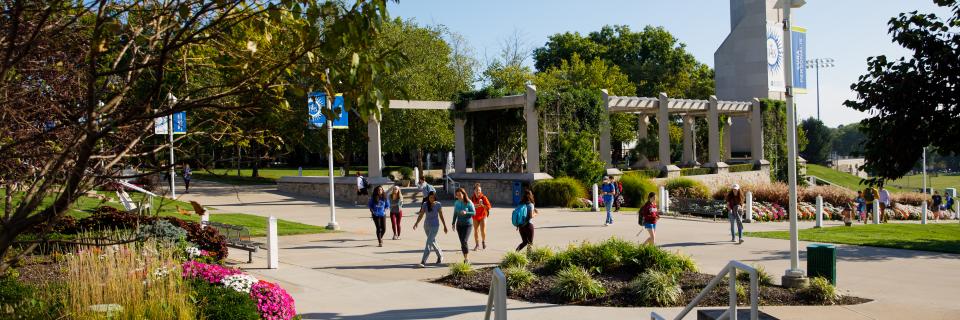At Conference, Jesuit Institutions of All Sizes Talk Commonalities

A lot separates the Jesuit higher-learning institutions in the United States — size, location and degree programs, to name a few. But they also face many of the same questions.
That’s the reason senior student development officers from across the country were on the Rockhurst University campus this week as part of the Jesuit Association of Student Personnel Administrators’ annual Senior Student Affairs Officers meeting.
It’s the second time Rockhurst has hosted the three-day gathering, according to Matthew Quick, vice president of student development and athletics and dean of students. It’s also the first time they’ve met since the COVID-19 pandemic. In other words, there’s a lot to talk about.
The pandemic is a topic of conversation, for sure, but so will a host of other topics on top of student affairs staffs’ minds — everything from retaining good staff members amid workforce shortages to planning enriching student programming to managing disciplinary procedures to situations regarding speech on campus. What makes this conference unique, Quick said, is that these senior staff can be frank in comparing what they are encountering and how they are responding, what’s worked and what has not.
“In all my years of going to professional conferences, I find this one to be the most life giving and difference making,” he said. “And It’s because we can have a level of candor with each other.”
Quick said he usually comes away with ideas to implement or think about at Rockhurst. In addition to that professional expertise, Quick said he appreciates the one-on-one relationships and mentorships that emerge from the talks. And he said he always comes away with a sense of pride in the work being done at Rockhurst to serve students.
“I’ve come back from these conferences in the past with is a renewed appreciation of Rockhurst and how mission-centric it is,” he said. “That includes a renewed gratitude for our student leaders. It reinforces the idea that we are companions, not just faculty and staff, but students too.”







